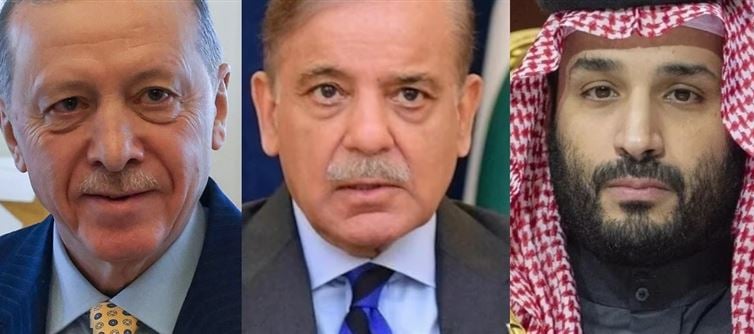
After the pahalgam massacre, tensions between india and pakistan have escalated to unprecedented levels. The way those terrorists slaughtered 26 people has garnered international notice.
The entire globe, including Islamic nations, supports India. The majority of Muslim nations put their economic and geopolitical interests ahead of demonstrating religious support with Pakistan. gulf nations value regional and economic stability, while iran and turkey are pursuing diplomatic cooperation. Instead of backing pakistan, iran has positioned itself as a neutral party and has already suggested mediation to ease tensions.
Through trade, energy exports, and the labor market, saudi arabia and other gulf nations like the United Arab Emirates (UAE) and qatar are linked to India. Sources claim that because india is a significant economic partner of theirs, these nations are refraining from providing pakistan with unqualified assistance. Saudi Arabia views kashmir as a bilateral problem between india and pakistan and made no strong statements on the pahalgam incident.
According to sources, saudi arabia is concentrating on expanding its revenue streams under "Vision 2030," where india plays a critical role and does not want to become involved in any disputes. Qatar's foreign policy is centered on maintaining economic stability and being impartial in regional conflicts, and it has also remained neutral in this regard. It puts financial gain ahead of religious harmony.
Although it did not publicly back pakistan, the uae denounced india for suspending the Indus Water Treaty (IWT). The uae must take a balanced approach because of its $85 billion in trade with india and its reliance on indian labor and investment.
Iran has positioned itself as a neutral party and offered mediation as a means of easing tensions. According to sources, iran is attempting to preserve both its economic ties with india and regional stability through its present diplomacy. Iran does not publicly support pakistan since it views india as a significant commercial partner, particularly concerning the Chabahar port project.
Turkey has historically backed pakistan in the kashmir dispute, but this time it is taking a moderate approach. Turkey is compelled to steer clear of conflict with india due to its $10 billion commerce with the country in 2024. Turkey's response, which reflects its attempts to preserve economic ties with india and steer clear of conflict, is restricted to diplomatic declarations. Turkey recently clarified that it does not provide pakistan with munitions.
The entire globe, including Islamic nations, supports India. The majority of Muslim nations put their economic and geopolitical interests ahead of demonstrating religious support with Pakistan. gulf nations value regional and economic stability, while iran and turkey are pursuing diplomatic cooperation. Instead of backing pakistan, iran has positioned itself as a neutral party and has already suggested mediation to ease tensions.
Through trade, energy exports, and the labor market, saudi arabia and other gulf nations like the United Arab Emirates (UAE) and qatar are linked to India. Sources claim that because india is a significant economic partner of theirs, these nations are refraining from providing pakistan with unqualified assistance. Saudi Arabia views kashmir as a bilateral problem between india and pakistan and made no strong statements on the pahalgam incident.
According to sources, saudi arabia is concentrating on expanding its revenue streams under "Vision 2030," where india plays a critical role and does not want to become involved in any disputes. Qatar's foreign policy is centered on maintaining economic stability and being impartial in regional conflicts, and it has also remained neutral in this regard. It puts financial gain ahead of religious harmony.
Although it did not publicly back pakistan, the uae denounced india for suspending the Indus Water Treaty (IWT). The uae must take a balanced approach because of its $85 billion in trade with india and its reliance on indian labor and investment.
Iran has positioned itself as a neutral party and offered mediation as a means of easing tensions. According to sources, iran is attempting to preserve both its economic ties with india and regional stability through its present diplomacy. Iran does not publicly support pakistan since it views india as a significant commercial partner, particularly concerning the Chabahar port project.
Turkey has historically backed pakistan in the kashmir dispute, but this time it is taking a moderate approach. Turkey is compelled to steer clear of conflict with india due to its $10 billion commerce with the country in 2024. Turkey's response, which reflects its attempts to preserve economic ties with india and steer clear of conflict, is restricted to diplomatic declarations. Turkey recently clarified that it does not provide pakistan with munitions.




 click and follow Indiaherald WhatsApp channel
click and follow Indiaherald WhatsApp channel